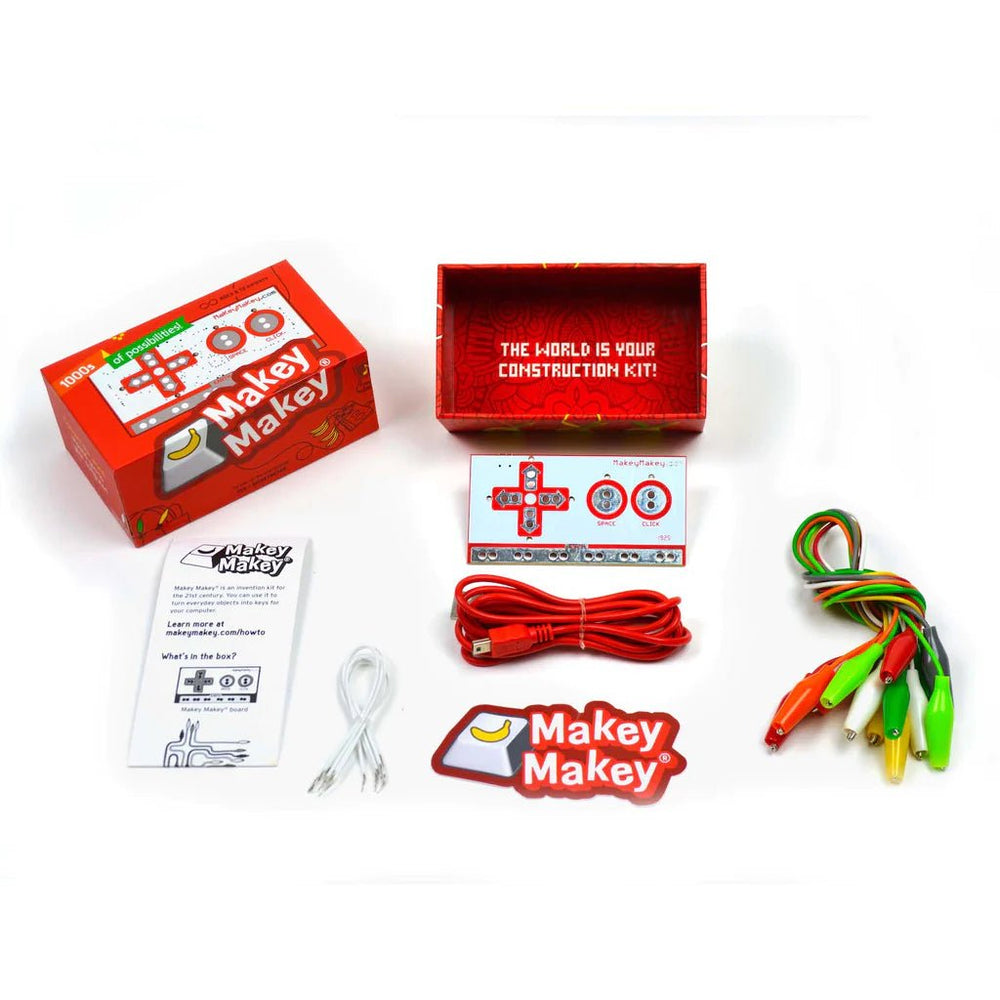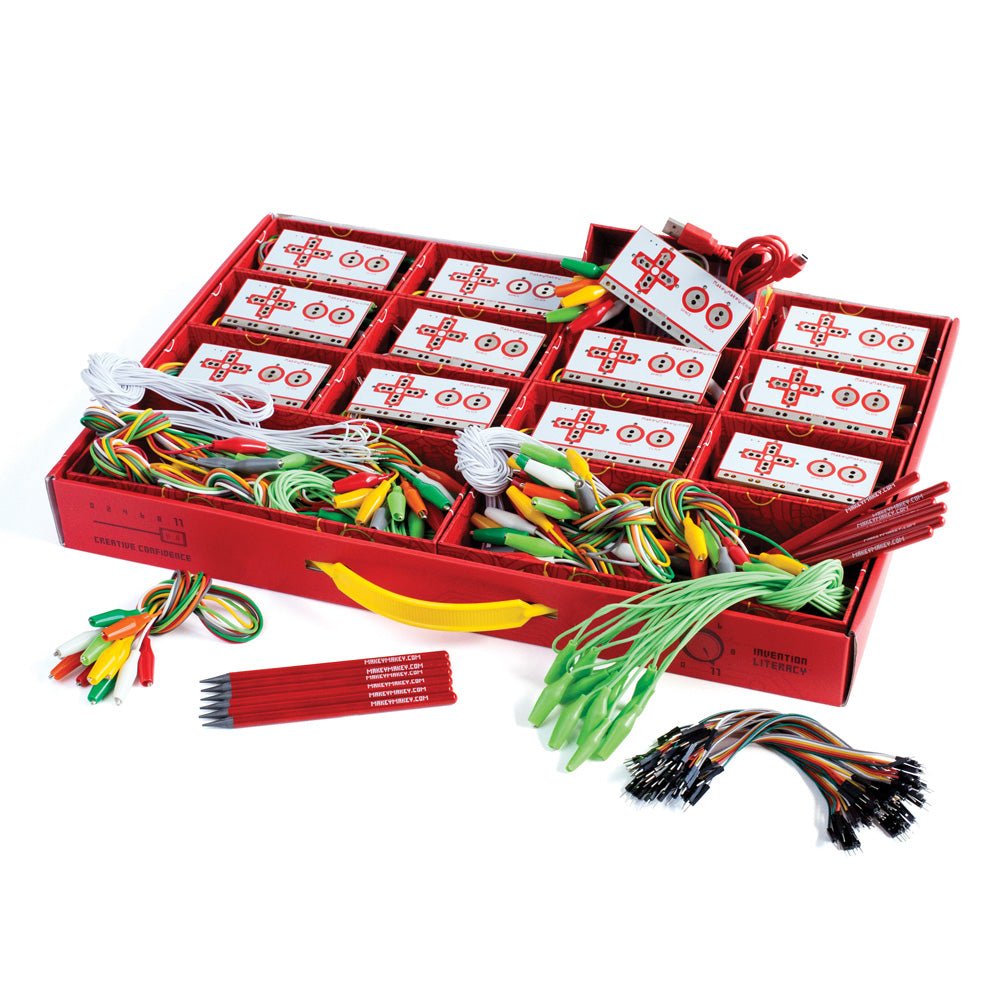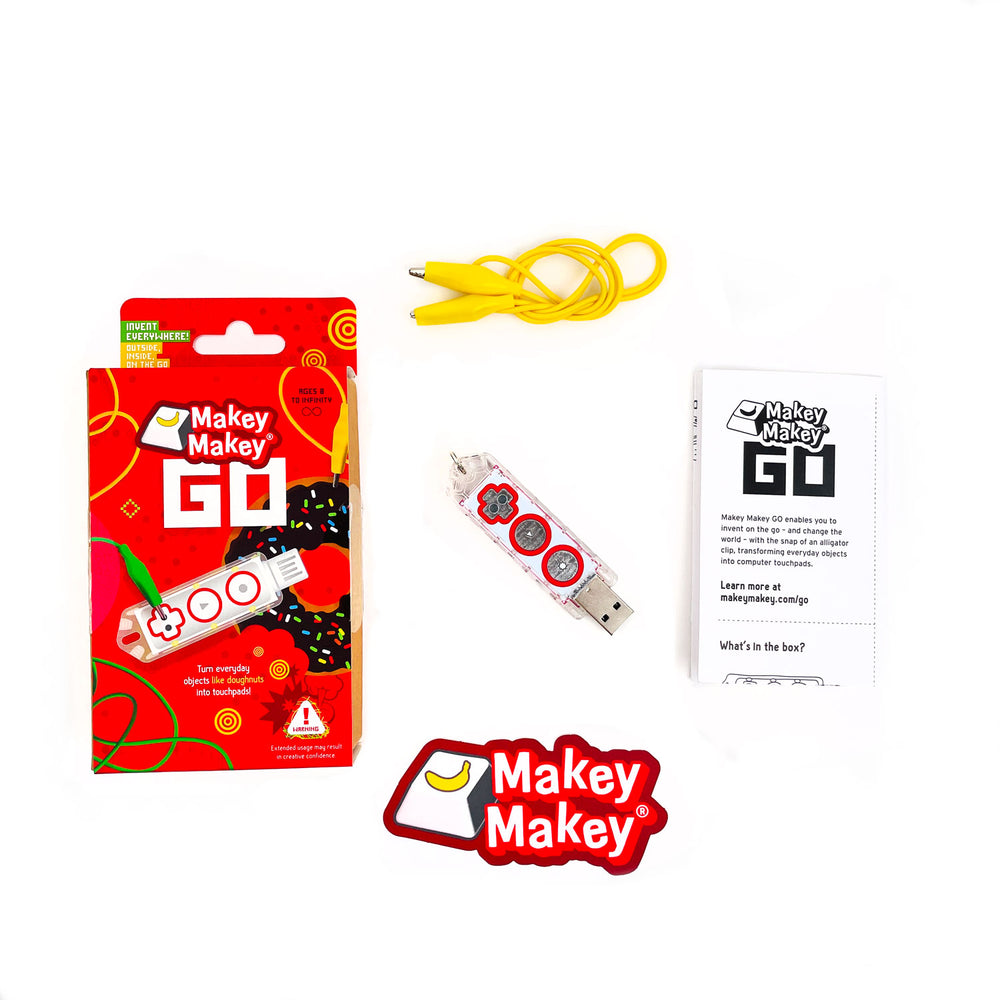Featured Educator: Conductive Music UK
Featured Educator Series
We love the innovative ways that educators (in both formal and informal learning spaces) introduce learners to music and Makey Makey. Each month, we like to feature an educator and a unique project they've worked on recently. To read more educator posts, simply sign up for our newsletter.

Conductive Music UK has been on our radar for some time! We’ve been fans of Yui since 2018 when she became a Makey Makey ambassador! She is an early education specialist and makes the most amazing comic style instructions which you've likely seen a few on our how to page. She is part of the team at Conductive Music UK. Enrico is the co-founder of Conductive Music, he loves traveling and sharing his love of technology and music with kids.
Conductive Music UK was recently listed as one of the top Music & Technologies Resources, as published in the UK Government's new National Plan for Music Education. We met with them to learn a little more about the company and their phenomenal workshops.
Tell us about Conductive Music
In the UK, all schools do not have a music teacher set aside for each school. So Conductive Music UK works with music education hubs as a government funded Community Interest Company to work in schools around the country to provide some quality music education. Conductive Music provides music and technology workshops for children as young as 4 and they also teach teachers!
Check out these one hour tech integrated music lessons from Conductive Music!
The UK government provides this funding as a way to level up communities. Conductive Music is cited in the UK government Department of Education's National Plan for Music education as an example of best practice in Digital Technology for Music Education.
One of Conductive Music’s main objectives is to come in and celebrate music arts with these kids because in general, the less funding a school has- the less money that school has for the arts.
The team at Conductive music engages students with music making and technology. They make sure to use all free websites https://conductivemusic.uk/learn/ to keep promoting music even after they leave the building. Here is a great example of a lesson with a free site to promote learning more about song composition:
https://conductivemusic.uk/2020/06/experiment53/
Their goal is to engage students with music and technology, but also to help students know about career paths they could pursue in music. Kids find movies engaging, so the workshop leaders discuss the ideas behind composition and film scoring. Some of their workshops are even based around making foley sound effects for films.
How did you get started with Makey Makey?
“We backed Makey Makey through the Kickstarter in 2013. At the time, we looked for things that we thought would work for teaching music, we would grab it and try to break it, and then try to make educational content with it.
With our work, we work in partnership with music education hubs to bring educational music content to students in school.

Human Piano Experiment #29
Oftentimes we enter schools where students have had very little music education. We want to offer new experiences to kids with challenging backgrounds. Our workshop is a catalyst to get them started in a new challenge. Now, we are also working with kids with disabilities. Some of these kids who have never liked school, are now finally enjoying something at school.
Here is an example of what we do:
- We might design instruments and then connect them to music software like Ableton, Bandlab, or Soundtrap.
- After students have built an instrument, we challenge them to make a backing track and we teach them how to improvise.
- Sometimes we use a light sensor to read the analog data and we build instruments based on those frequencies.
- With younger pupils, we might share a major pentatonic and then challenge the class to compose a song with this scale. We share notes as color and the kids choose colors to create their song.
- Kids create an object with LEGO and then place Play doh on the LEGO to create a musical instrument.
This all started as a very small project with 5 schools in East London, Newham. In the beginning, we used Arduino for a two day workshop with a group of 15. We moved to Makey Makey because it is more accessible for students.
We realized that if Makey Makey sends letters, we could challenge students to create scales with Makey Makey and even learn to solder and create a shield for Makey Makey.
How do you engage students in music making?
We challenge students to invent an instrument. We tell them, “Don’t think of a typical instrument, here is cardboard and you can design your own”.
We have them draw connections with pencils, because it is important to use everyday materials in a different way.
Can you tell us about some of your workshops with students?
With very young students we use plug and play apps, as kids get older we give them more choices in their decisions. We’ve started using MakeCode Arcade with secondary students. We challenge them to create musical video games. The spirit of the game they create is to make music.
To help them understand the concept, we share a few games we designed in MakeCode Arcade. We then share how the musical notes are controlled by arrows on the keyboard, then we have them plug in Makey Makey and students will hold Makey Makey and use their hands to Play to Play the dinosaur bones on this game.
Next we move to the Crocodile Lake game, where the students learn to connect alligator clips to Makey Makey to extend the connections.
The third experiment is to create a high five game where students high five to make musical connections. We ask the students to think about things like, “How can we make it a shoulder game?"

The last challenge is to make a ruler piano to play music in the little ghost game.

After two hours, we have performed one or two songs together and hopefully instilled a love of music.
Shout out to Yui
Dr. Yui Shikakura is a teacher, researcher and performer, specialized in Music Education, with a focus on cutting-edge Edu-Tech. Yui’s background is rooted in Japanese traditional music, with a PhD in Kabuki and education.
Yui has published papers on Kabuki performances during the Japanese occupation of Korea, co-authored a syllabus aimed at BA & MA students, specializing in primary education, and a chapter on Creativity and new technologies for Tokyo University.
As an educator, Yui designed innovative approaches for Japanese traditional music, as well as spearheading the new field of music-lead STEAM education, by designing a blended learning playground for Conductive Music CIC, London. Yui delivers STEAM workshops daily and regularly tours across England, Japan, Germany, France, Spain, Thailand, Hong Kong and Oman. She also works as a graphic designer, producing posters for operatic re-makes, such as, La Traviata meets Japanese comedy in Asakusa Toyo-kan, Tokyo (2019-2022).

Shout out to Enrico
Enrico founded Conductive Music CIC in 2012 to support young people in the creation and performance of their own music. As a teacher and researcher, Enrico focuses on the Conductive Music remit of engaging children from challenging backgrounds through open source technology. His background is in percussion and technology applied to Contemporary Classical acoustic and electroacoustic performance, with a 15-year international career as a practitioner and workshop leader. Enrico has 3 years experience as business development manager at The Cultural Capital Exchange, in the field of Knowledge Exchange, connecting Academic Researchers with Art Organizations across the country. He regularly tours internationally, delivering workshops, lectures and concerts in theatres and Universities across Europe, Japan, Thailand, and Hong Kong.
















